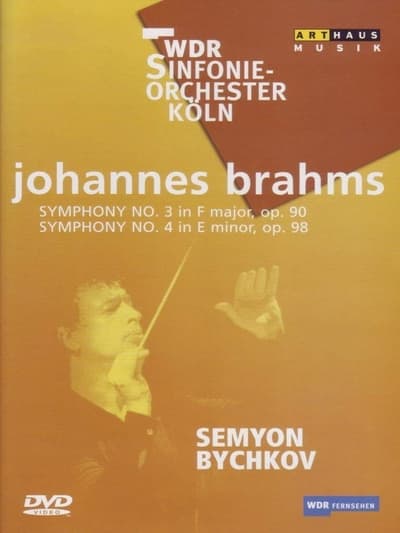
Brahms - Symphonies No. 3 and 4 / Semyon Bychkov, WDR Sinfonieorchester Koln
Semyon Bychkov WDR Sinfonieorchester Köln SYMPHONY NO. 3 IN F MAJOR, OP. 90 SYMPHONY NO. 4 IN E MINOR, OP. 98 Far from being conservative, as Brahms often has been referred to, his symphonies show the composer as a groundbreaking pioneer far ahead of his time. He may not have broken dramatic new ground in the same way as his musical colleagues Liszt and Wagner, who invented new genres. Instead, his innovations took place at the mircro-level – within music’s inner palm. In this respect Brahms was far ahead of his time – and this fact explains what half a century later Arnold Schoenberg regards him as “progressive” and was referring to him for his own compositional theory.

Storyline
Semyon Bychkov WDR Sinfonieorchester Köln SYMPHONY NO. 3 IN F MAJOR, OP. 90 SYMPHONY NO. 4 IN E MINOR, OP. 98 Far from being conservative, as Brahms often has been referred to, his symphonies show the composer as a groundbreaking pioneer far ahead of his time. He may not have broken dramatic new ground in the same way as his musical colleagues Liszt and Wagner, who invented new genres. Instead, his innovations took place at the mircro-level – within music’s inner palm. In this respect Brahms was far ahead of his time – and this fact explains what half a century later Arnold Schoenberg regards him as “progressive” and was referring to him for his own compositional theory.





















